Current Members of the Equity, Diversity and Inclusion Advisory Board
Malabika Pramanik (Chair) (University of British Columbia) - Harmonic Analysis
David Ayala (Montana State University) - Algebraic and Differential Geometry and Topology
Javier Arsuaga (University of California) - Computational methods, 3D structure of genomes, statistical mechanics of polymers, continuum mechanics of liquid crystals, knot theory, topological data analysis, machine learning, Molecular and Cellular Biology.
Agnès Beaudry (University of Colorado Boulder)
Luis Nuñez Betancourt (Centro de Investigación en Matemáticas) - Commutative albera and algebraic geometry
Laleh Behjat (University of Calgary) - Developing EDA techniques for Physical Design and Application of Large-Scale Optimization in EDA
Ron Buckmire (Occidental College) - Numerical Analysis, Applied Mathematics, Mathematical Modeling, Machine Learning, Scholarship of Teaching and Learning
Lauren Childs (Virginia Tech) - Mathematical Biology, Mathematical Modeling, Dynamical Systems
Edward Doolittle (First Nations University of Canada) - Differential Operators, Partial Differential Equations
Peter Dukes (University of Victoria) - Algebraic and Computational Methods in Combinatorics
Christopher Felder (Indiana University) - Functional Analysis, Complex Analysis, Operator Theory
Henry Fowler (Navajo Technical University) - Math Literacy and Advocating for Social Justice through Mathematics
Michael Hrusak (Universidad Nacional Autónoma de México) - Set theory, Set-theoretic topology, Boolean algebras
Chris Kapulkin (University of Western Ontario) - Homotopy Theory, (Higher) Category Theory, Homotopy Type Theory, Combinatorics, Formalization of Mathematics, Cryptography
Shakil M. Khan (University of Regina) - Artificial Intelligence, in particular Knowledge Representation and Reasoning, Autonomous Agents and Multiagent Systems, and Cognitive Robotics
Kathryn Leonard (Occidental College) - Geometric Models for Computer Graphics, Computer Vision, and Data Analysis.
Yifeng Liu (Zhejiang University) - Algebraic Number Theory, Algebraic Geometry, Automorphic Forms
Richard Lockhart (Simon Fraser University) - Goodness-of-fit area, Applications in the Physical Sciences, High Dimensional Inference, Inference after Model Selection, Probabilistic Proofs in Number Theory, Functional Data Analysis, Copulas, Inference for Stochastic Processes.
Jianfeng Lu (Duke University) - Applied Mathematics, Machine Learning
Sara Maloni (University of Virginia) - Geometric Structures, Low Dimensional Topology, Hyperbolic Geometry
Karen Meagher (University of Regina) - Discrete Mathematics and Algebraic Graph Theory
Marni Mishna (Simon Fraser University) - Analytic and Enumerative Combinatorics
Saman Muthukumarana (University of Manitoba) - Bayesian Methods, Biostatistics Data Science, Environmental and Ecological Statistics, Computational Statistics, Statistics in Sports
Anotida Madzvamuse (University of British Columbia) - Theoretical and Computational Biology, and Numerical Analysis
Sandra Palau (IIMAS - Universidad Nacional Autónoma de México) - Probability theory, Stochastic processes, Branching processes and superprocesses, Random environment, Self-similar Markov processes, Stochastic Systems with interacting components, Lévy processes, Markov Additive Processes, Stochastic differential equations.
Jennifer Park (Ohio State University) - Number Theory and Algebraic Geometry
Ajay Ramadoss (Indiana University) - Problems related to noncommutative geometry and its relation with other fields such as differential geometry; algebraic geometry; representation theory
Ludovic Rifford (Université Côte d’Azur) - Geometric control theory, Sub-Riemannian geometry, Hamiltonian dynamics, Optimal transport
Talia Ringer (UIUC) - Proof engineering, proof automation, proof assistants, dependent type theory, programming languages, AI for theorem proving
Alberto Saldaña (IM - Universidad Nacional Autónoma de México) - Nonlinear partial differential systems and equations of elliptic and parabolic type, Local and nonlocal (fractional) higher-order operators, Scientific computing
Song Sun (UC Berkeley, IASM) - Differential Geometry, Complex Geometry, Geometric Analysis
Aaron Tikuisis (University of Ottawa) - Structure of C*-algebras
Aissa Wade (Penn State University) - Differential geometry, Mathematical physics
Bio Sketches
Malabika Pramanik (Chair) (University of British Columbia)
Malabika Pramanik is a Canadian mathematician who works as a professor of mathematics at the University of British Columbia. Her research lies in mathematical analysis, specifically in the areas of harmonic analysis, geometric measure theory, complex variables, and partial differential equations. Her work focuses on exploring finer structures in mathematical ensembles involving sets and functions, in particular on fractals. One recurrent theme in her work is the search for patterns in seemingly random objects and their connections with quantifiable properties of these objects, such as regularity, clustering, smoothness or existence of arithmetic-geometric structures. Malabika received her Ph.D. in mathematics from the University of California, Berkeley (2001). After short-term positions at the University of Wisconsin and Caltech she joined UBC in 2006. She is the 2015-16 winner of the Ruth I. Michler Prize of the Association for Women in Mathematics, the 2016 Krieger-Nelson Prize of the Canadian Mathematical Society (CMS) and a Killam Research Prize (2017) from the UBC Faculty of Science. In her role as Vice-President for the Pacific region of the CMS and as organizer of ongoing programs such as "Two weeks in Vancouver - a summer school for undergraduate women in math" and "Diversity in mathematics", she is actively engaged in initiatives that promote representation of women and minority groups in STEM fields.
David Ayala (Montana State University)
Javier Arsuaga (University of California)
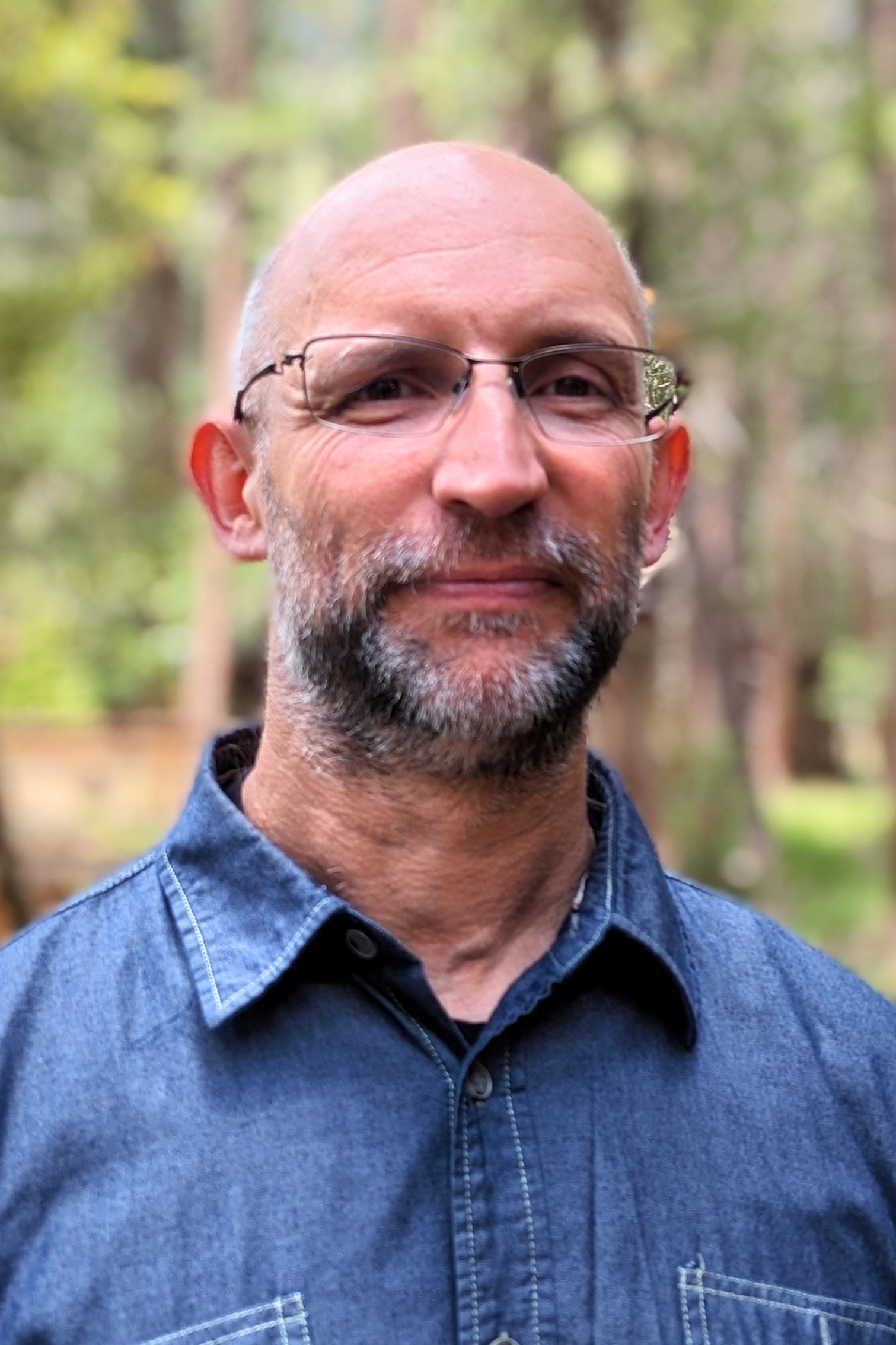
Javier Arsuaga is Professor of Mathematics and of Molecular and Cellular Biology at the University of California (UC), Davis. His research focuses on the development of mathematical and computational methods to address questions that arise in the study of the 3D structure of genomes. Mathematical approaches used to study the 3D structure of genomes include statistical mechanics of polymers, continuum mechanics of liquid crystals, knot theory, topological data analysis and machine learning. Javier received his PhD in Mathematics from Florida State in 2000, where he was a fellow of the Burroughs Wellcome Fund through the Program in Mathematics and Molecular Biology. From 2000 to 2005, he was postdoctoral fellow in Mathematics and in Molecular and Cellular Biology at UC Berkeley and at the UC San Francisco Cancer Center. From 2005 to 2014 he was assistant and associate professor at San Francisco State University. He has been professor at UC Davis since 2014 and chair of the Graduate Group in Applied Mathematics (GGAM) from 2022-2025. His research has been supported by the National Science Foundation or the National Institutes of Health since 2006. He has been visiting scholar at University of Oxford, Universidad de Salamanca, Institute of Mathematics and Its Applications (IMA) at the University of Minnesota, and Stanford University.
EDI Statement
Javier Arsuaga is strongly committed to diversity, equity and inclusion. He was chair of the UC Davis Affirmative Action and Diversity (AA & D) Committee and of the UC Systemwide Affirmative Action, Diversity and Equity committee (UCAADE). During his tenure in AA&D and UCAADE he helped design the Systemwide Hispanic Serving Institutions Doctoral Diversity Initiative; made recommendations, jointly with the Committee on Faculty Welfare, to the UC Administration for mitigating COVID-19 impacts on faculty advancement, morale, work-life balance, and dependent care responsibilities; worked with neurodivergent students from UC Davis and the UC Academic Senate to make UC campuses more welcoming for neurodivergent students; worked with the UC Committee on Academic Freedom to draft guidelines for the proper use of Diversity Statements. He has also served on committees related to Advancing Faculty Diversity at the University of California, and the Cal-Bridge program to increase the participation of underrepresented groups in Mathematics PhD programs. As chair of GGAM he started an event to celebrate mathematical accomplishments of women and gender expansive individuals. He envisions extending BIRS programs to the global south, in particular to countries in Africa.
Agnès Beaudry (University of Colorado Boulder)
Laleh Behjat (University of Calgary)
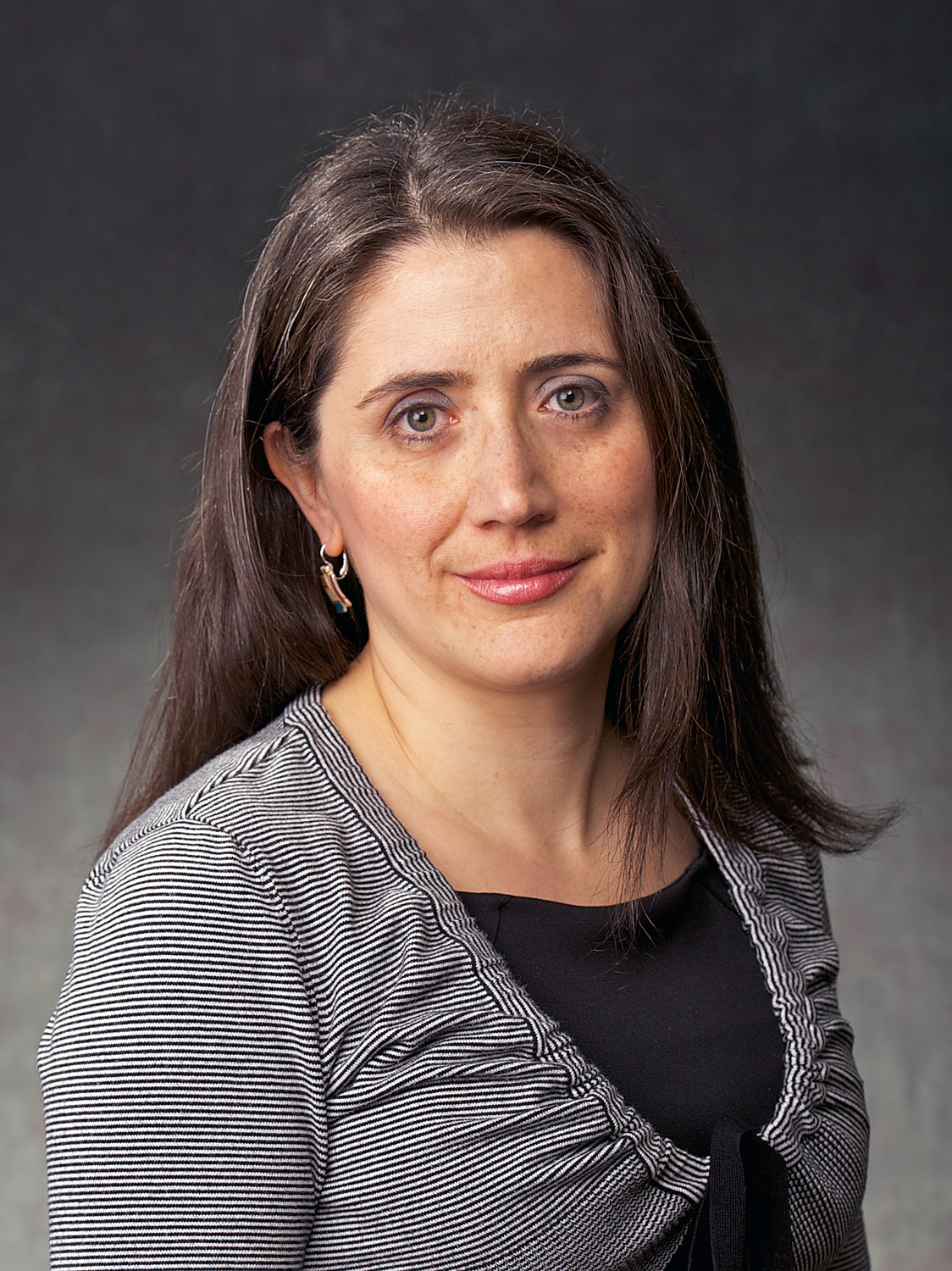
Dr. Laleh Behjat is a professor at the Department of Electrical and Computer Engineering at the University of Calgary, Canada and the NSERC Chair for Women in Science and Engineering. Her research focuses on developing mathematical optimization techniques and software tools for automating the design of digital integrated circuits. She has won several awards for her work including the 1st in International Symposium on Physical Design Placement contest, 3rd place in the Design Automation Perspective Challenge, and Schulich School of Engineering Research Productivity Award. Dr. Behjat acted as an academic advisor for of Google Technical Development Guide and was a member of the Google’s Council on Computer Science Education. She is an Associate Editor of the IEEE Transactions on Computer-Aided Design of Integrated Circuits, ACM Transactions on Design Automation of Electronic Systems, and Optimization in Engineering from Springer.
Dr. Behjat is passionate about increasing the status of women in science, technology, engineering and mathematics (STEM). She believes that equity, diversity, inclusion and justice in Science, Technology, Engineering and Mathematics can be achieved only by removing systemic barriers in the path of women and other underrepresented groups. She was the recipient of the 2015 Association of Professional Engineers and Geoscientists of Alberta (APEGA) Women in Engineering Champion Award, Association of Computing Machinery, Special Interest Group in Design Automation Service Award and 2017 Killam Graduate Student Supervision and Mentorship Award. Her team, Schulich Engineering Outreach Team, was also the recipient of the ASTech Leadership Excellence in Science and Technology Public Awareness Award in 2017.
Ron Buckmire (Occidental College)
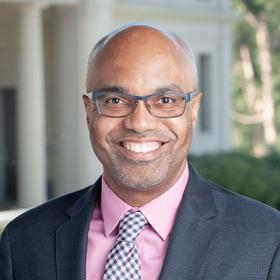
Ron Buckmire is the Associate Dean for Curricular Affairs and Professor of Mathematics at Occidental College (Oxy) in Los Angeles, California. He is in charge of all aspects of the curriculum and reports directly to Oxy’s chief academic officer, Wendy Sternberg. His primary responsibility is the direction of the general education program and he has several other academic initiatives reporting to him. Ron holds mathematics degrees (Ph.D., M.Sc. and B.Sc.) from Rensselaer Polytechnic Institute. He has been on the Oxy faculty since 1994, serving as chair of the mathematics department twice and achieving the rank of Full Professor in 2014 after beginning his academic career at Oxy as a Minority Postdoctoral Scholar-in-Residence. He was an employee of the United States National Science Foundation (NSF) from 2011-2013 and 2016-2018. At NSF, he was a Lead Program Director in the Division of Undergraduate Education where he headed the S-STEM program and was responsible for the undergraduate mathematics education award portfolio.
He is the co-editor of Improving Applied Mathematics Education (Springer Nature, 2021) and has published peer-reviewed articles in an eclectic collection of peer-reviewed journals such as Data, Notices of the American Mathematical Society, Numerical Methods for Partial Differential Equations, IMA Journal of Management Mathematics, Works and Days and the Albany Law Review. He is a passionate advocate for broadening the participation of historically excluded groups (especially LGBTQ+ individuals and racial/ethnic minorities) in mathematics and other STEM disciplines. He serves the broader mathematics community in several capacities, such as Vice-President for Equity, Diversity and Inclusion (EDI) at SIAM, Chair of the AMS Committee on EDI, Chair of MSRI’s HRAC, member of BIRS’ EDI board and ICERM’s board of trustees. He is a co-founder and board member of Spectra, the association for LGBTQ+ mathematicians and their allies.
Research interests: Numerical Analysis, Applied Mathematics, Mathematical Modeling, Machine Learning, Scholarship of Teaching and Learning
EDI Statement
I believe strongly that “Mathematics is a human endeavor and thus it is important ‘who does the math.’” Humans have identifying characteristics such as race, ethnicity, gender, sexual orientation, language, national origin, et cetera. As the saying goes, “diversity is a fact, inclusion is a choice, equity is the goal and justice is coming” (Bonato, 2021). Once you have multiple people engaging in an enterprise like doing mathematics you will have diversity because you will have people who have differing identities. Whether everyone involved will feel welcome and included in the activity is a choice that the organizers make through various decisions like what language materials will be printed in, how accessible the space is, whether the location is in an area with discriminatory policies towards certain groups, etc. Equity and justice is what we should all work towards in mathematics and in other aspects of our lives. In mathematics, I think EDI efforts require careful and conscientious organizing and a willingness to be creative, respectful and sometimes disruptive to “norms” or the status quo. I try to engage in activities and associate myself with organizations that will increase the likelihood of equity and justice in mathematics occurring, thus I am proud to be a member of the EDI Board of BIRS.
Lauren Childs (Virginia Tech)

Lauren M. Childs is an Associate Professor of Mathematics at Virginia Tech, the Associate Director of the Virginia Tech Center for the Mathematics of Biosystems, and the Cliff and Agnes Lilly Faculty Fellow of the College of Science at Virginia Tech. Her research program involves the development, analysis, and simulation of mathematical and computational models to examine biologically-motivated questions. Her work includes modeling with diverse quantitative techniques for a wide variety of applications in epidemiology, immunology, and ecology and has been supported by the National Science Foundation, the National Institutes of Health, the Simons Foundation, and the Jeffress Trust.
She received her BS in Mathematics and Chemistry from Duke University followed by her MA and PhD in Applied Mathematics from Cornell University. She was a Postdoctoral Fellow at Georgia Tech joint between the School of Biology and the School of Mathematics. Following her time at Georgia Tech, she was a MIDAS Postdoctoral Fellow and Research Scientist in the Center for Communicable Disease Dynamics at the Harvard T.H. Chan School of Public Health. She was a visiting scholar in the Cornell Math Department in Fall 2023 as the AWM Ruth I. Michler Memorial Award winner and a visiting scholar in the Center for Communicable Disease Dynamics at the Harvard T. H. Chan School of Public Health in Spring 2024.
Research interests: Mathematical Biology, Mathematical Modeling, Dynamical Systems
EDI Statement
Mathematics has historically been dominated by privileged groups, making diversity, equity, inclusion, and outreach initiatives critical to research and educational programs in the field. This involves enhancing access to traditionally underrepresented groups through developing mentoring and networking communities for instance through focused conferences, providing opportunities for exposure to the broad mathematical community such as through invitations to speak, and recognizing that diverse perspectives and experiences are not only helpful but essential to advance mathematics. Another key component in broadening participation in science is through mentoring and advising by ensuring that all individuals feel welcome and comfortable throughout their career by creating safe spaces for open communication and mindfully providing opportunities for individuals across a broad spectrum of backgrounds. Finally, it’s important that individuals at all ages are aware that mathematics is open and accessible to everyone. Thus, communicating science in an approachable manner to the general public and especially to K-12 students through outreach in schools and public events is imperative to improve diversity, equity and inclusion in science. At all stages of my career, I have supported and participated in such efforts through development of programs and by securing funding to ensure their success.
Edward Doolittle (First Nations University of Canada)
Edward Doolittle is a Mohawk (Kanyen'kehake) from Six Nations in southern Ontario, born and raised in Hamilton, Ontario. He earned a PhD in pure mathematics (partial differential equations) from the University of Toronto in 1997. He has taught mathematics, statistics, mathematics education, and Indigenous Studies at the University of Toronto, York University, Queen's University, Confederation College, the University of Regina, and First Nations University.
Since 2001, Edward has been a faculty member at First Nations University in Regina, Saskatchewan. Currently he is Associate Professor of Mathematics in the Department of Indigenous Knowledge and Science at First Nations University. His research interests include Indigenous mathematics, which includes mathematics developed by Indigenous people and mathematics applied to problems of interest to Indigenous people, and Indigenous mathematics education.
Increasing the participation of Indigenous people in STEM fields has been a goal of Edward's since he began his university education over 35 years ago. In that time, his thinking about how to approach the issues has continued to evolve. He believes that entire communities should be involved in deciding the goals and methods of mathematics education, and that a critical aspect of success in Indigenous mathematics education is building and maintaining relationships with all stakeholders. Edward also tries to find the mathematical thought that already exists in all cultures, and to use that to motivate and enhance mathematics education at all levels.
Edward received the Adrien Pouliot Award in 2023 from the Canadian Mathematical Society.
Peter Dukes (University of Victoria)
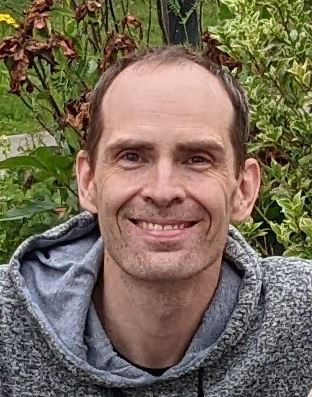
Peter Dukes is a professor in the Department of Mathematics and Statistics at the University of Victoria. He obtained his PhD in 2003 from the California Institute of Technology, and then joined UVic after postdocs at Arizona State University and the University of Toronto. Peter's mathematical interests are centred on combinatorial structures, such as designs, codes, arrays, finite geometries, graphs and hypergraphs. His favorite problems often have algebraic or extremal themes. Peter was the recipient of the 2007 Kirkman Medal and 2014 Hall Medal in Combinatorics.
EDI Statement
Mathematics is built on ideas, yet enriched through our social activity. Correspondingly, we have both the opportunity and responsibility to attract diverse minds to our subject. I believe underrepresented groups are a great resource for fresh insights and new ways of understanding. Although my own life has been relatively fortunate and privileged, I have seen the harm done by barriers to inclusivity. I consider it a duty to help break down these barriers, whether through mathematical outreach or just listening and forging common ground. I am committed to a better tomorrow in which, through a culture of diversity, our work in the mathematical sciences will be far greater than the sum of our efforts.
Christopher Felder (Indiana University)
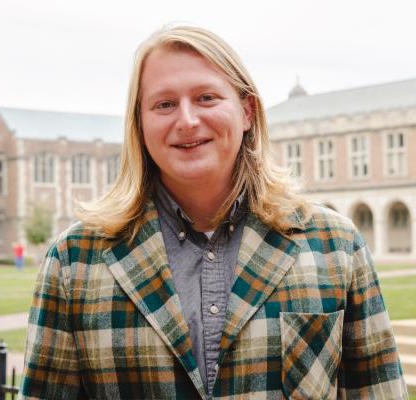
Christopher Felder is a first-generation scholar and second-generation immigrant to the United States. After completing his PhD at Washington University in St. Louis in 2022, he is now a Zorn Postdoctoral Fellow at Indiana University. Chris’ research interests lie at the intersection of complex analysis and operator theory. In practice, his research uses complex analysis to study infinite dimensional vector spaces, and vice-versa. The use of functional analysis in approximation problems has been a major theme of his research.
Research Areas: Functional Analysis, Complex Analysis, Operator Theory
EDI Statement
Both civically and mathematically, I am deeply committed to fostering a welcoming environment, open dialogue, and respectful interaction. I believe that these things create community, and that community is fundamentally correlated with health and happiness, and can help dissolve many of the societal barriers that we face.
Further, I believe that richness of community often comes from a variety of perspectives and experiences. Because of this, I am dedicated not only to creating a supportive environment, but also to building a climate where everyone, regardless of their background, feels valued and encouraged to pursue their passion.
Within mathematics, I actively seek to bolster equitable opportunities for learning, research, and professional growth, and to endorse policies that remove barriers and ensure full participation for all. By engaging with and supporting underrepresented groups, I hope to learn and help promote a diverse and respectful mathematical community, where our shared love for mathematics reigns supreme.
It is unclear how to decisively build an inclusive culture in STEM, but part of the necessary condition for this requires actively fostering an environment where diverse perspectives are valued, and equitable access to opportunities, resources, and support for all individuals is ensured, regardless of background. I am unsure that a perfect recipe for this exists, but it can certainly be helped along by mentorship programs, inclusive university practices, and by creating spaces for open dialogue and collaboration among all members of the STEM community. More importantly, we should welcome ideas surrounding this topic and respectfully ask, especially among our underrepresented friends, how we can support people in realistically finding and pursuing their passions. Listening to and reflecting on these responses is a critical part of the path forward in resolving many of the inclusivity issues we face.
Henry Fowler (Navajo Technical University)
Michael Hrusak (Universidad Nacional Autónoma de México)
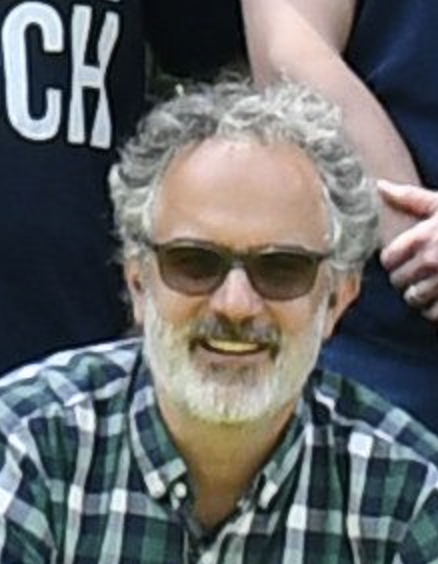
Michael Hrusak is a Mexican mathematician of Czech origin. He obtained his Master’s in 1994 from the Charles University in Prague and PhD in 1999 from York University in Toronto. Since 2002 he works as a full-time researcher at the National University of Mexico (UNAM). His research involves set theory and its applications to topology, mathematical analysis and geometry.
EDI Statement
Mathematics provides a universal language to deep understanding of a wide range of phenomena. The right to access to this language and to this knowledge must also be universal and not depend on gender, ethnicity, religion, or any other artificial barrier.
Chris Kapulkin (University of Western Ontario)
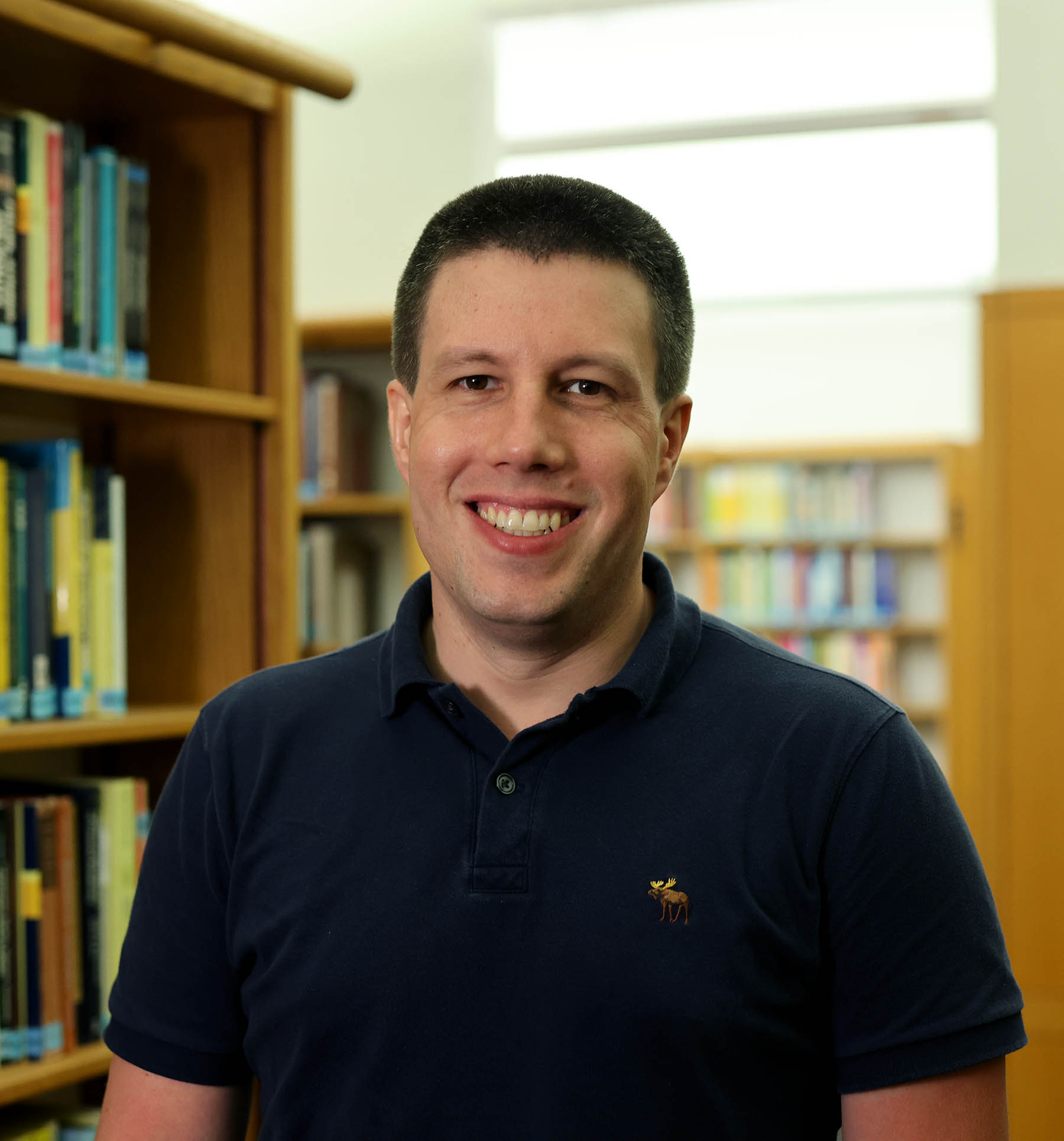
Chris Kapulkin is an associate professor of mathematics at the University of Western Ontario. He completed his Ph.D. at the University of Pittsburgh in 2014, under the supervision of Thomas C. Hales. He has held appointments at the Institute for Advanced Study in Princeton, NJ and the Mathematical Sciences Research Institute in Berkeley, CA.
Kapulkin is best known for his work in homotopy type theory and higher category theory, in particular, settling the conjectures of Joyal (2014) and Voeovdsky (2019), but he has also published in combinatorics, formalization of mathematics, cryptography, and philosophy of mathematics. For his contributions, he received the Distinguished Research Professorship in Science in 2022.
Research Areas: Homotopy Theory, (Higher) Category Theory, Homotopy Type Theory, Combinatorics, Formalization of Mathematics, Cryptography
EDI Statement
All people have the right to contribute to the mathematics enterprise, but some face more obstacles while doing so than others. Discrimination takes on many forms, from overt bigotry to unconscious bias, and happens along many axes, including race, gender, and sexual identity, among others. Countering it requires that those of us with resources and influence, be it graduate supervisors, conference organizers, or members of some board, systematically examine the forms and axes of discrimination that they might be (inadvertently) reinforcing.
Shakil M. Khan (University of Regina)
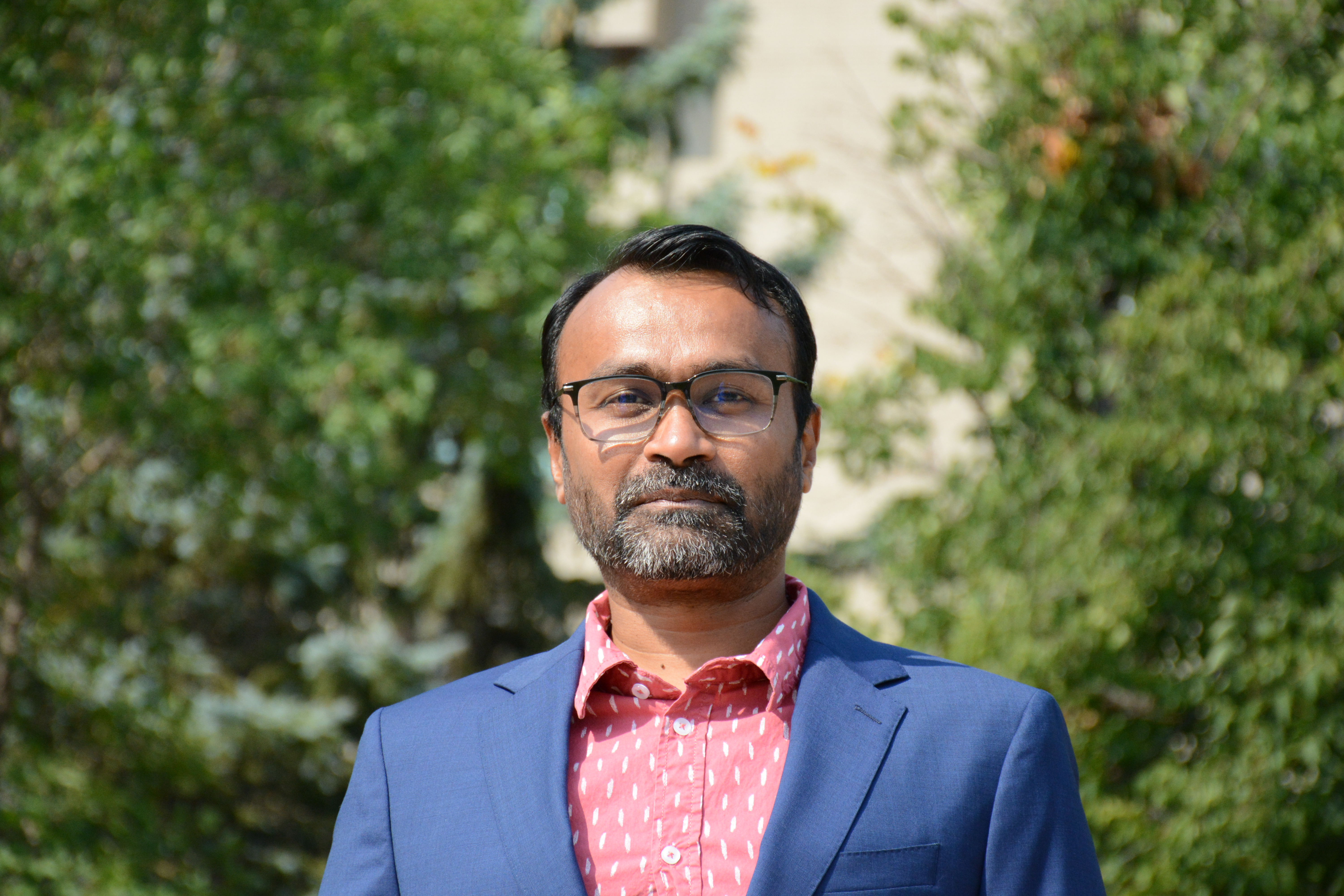
Shakil M. Khan is a Canadian artificial intelligence researcher, who is currently appointed as an Assistant Professor at the University of Regina. Prior to joining Regina, Khan spent two years as a postdoctoral research fellow in the Department of Computer Science at Toronto Metropolitan University and a year as a Research Associate in the School of Information Technology at York University. He received his Ph.D. in Computer Science from York University in 2018 and his B.Sc. in Computer Science from the University of Windsor in 2001. Khan’s research is in various subareas of artificial intelligence (AI), including knowledge representation and automated reasoning, multiagent systems, and cognitive robotics. He uses formal logical theories of action and change to model practical reasoning.
EDI Statement
Much like the Canadian Governor General Mary Simon's view on reconciliation, I too believe that EDI is "a way of life and requires work every day ... is getting to know one another.'' The important keywords here are `to know', `work', and `every day'. Indeed, it is only through proper knowledge and continuous work put towards EDI we can achieve an inclusive workplace where everyone is respected and treated equally regardless of their gender identities, sexual orientations, races, ethnicities, religious beliefs, ages, physical or mental abilities, and perspectives. My EDI in training philosophy is rooted in my own experience as a visible minority and international graduate student as well as reflections that I made seeing others with even stronger restrictions, including female graduate students. I thus strive to create opportunities for those that might otherwise have difficulty obtaining on their own. I have identified Women, Indigenous, and Black people as significantly underrepresented in Computer Science. I believe that measures such as focused outreach to special interest groups, like Women in Computer Science, and targeted recruitment efforts in local Indigenous colleges, such as Northland College in Saskatchewan, must be taken to address this imbalance within research teams.
Yifeng Liu (Zhejiang University)
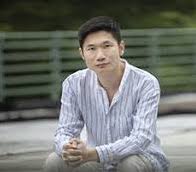
Yifeng Liu, professor at the Institute for Advanced Study in Mathematics, Zhejiang University. He obtained his PhD degree from Columbia University in 2012 under the supervision of Shouwu Zhang. He was a postdoc at Massachusetts Institute of Technology, an assistant professor at Northwestern University, an associate professor and then professor at Yale University, before joining the current institute in 2021. His main research fields include algebraic number theory, algebraic geometry, and automorphic forms. He received a Sloan Research Fellowship in 2017 and was awarded the SASTRA Ramanujan Prize in 2018 jointly with Jack Thorne.
Research interests: Algebraic Number Theory, Algebraic Geometry, Automorphic Forms
EDI Statement
Nowadays, mathematics has changed everybody’s life in a fundamental way. It is important for all groups of people to have the equal opportunity to understand mathematics, appreciate mathematics, benefit from mathematics, and contribute to mathematics.
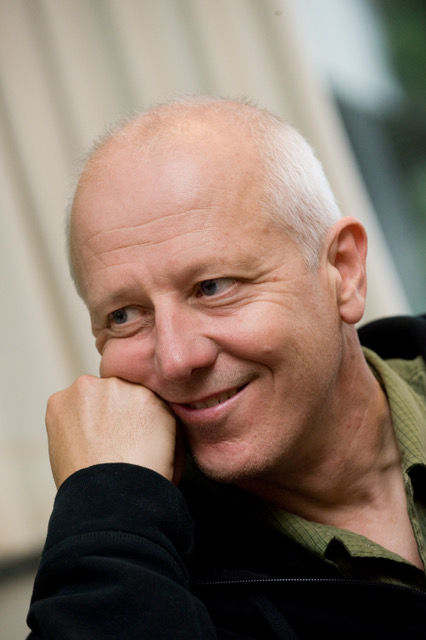
Richard Lockhart (Simon Fraser University)
Richard Lockhart was born in Montreal, and grew up in Winnipeg and Tsawwassen (a Vancouver suburb). He is a mathematical statistician with an undergraduate degree in mathematics from the University of British Columbia (1975). He has a PhD in Statistics from the University of California at Berkeley (1979). He has been a faculty at Simon Fraser University since 1979.
Richard Lockhart has experience on a number of grant review committees (two terms with NSERC, one on the scientific advisory committee for the CRM, and currently on an FRQ review committee) as well as experience on advisory committees (Statistics Canada and an ASA committee to advise the US Energy Information Administration). He was once President of the Statistical Society of Canada (SSC) and Editor of the SSC news letter (Liaison). He has also had a fair amount of editorial experience (AE for The Canadian Journal of Statistics and Technometrics, Editor of The Canadian Journal of Statistics, one of 4 current co-editors for Statistics Surveys, and Executive Editor for the Journal of Multivariate Analysis).
Research Areas: Richard Lockhart has worked a fair amount in the area of goodness-of-fit but have some experience in applications in the physical sciences, high dimensional inference, inference after model selection, probabilistic proofs in number theory, functional data analysis, copulas, inference for stochastic processes, and a variety of other things.
[TOP]Jianfeng Lu (Duke University)
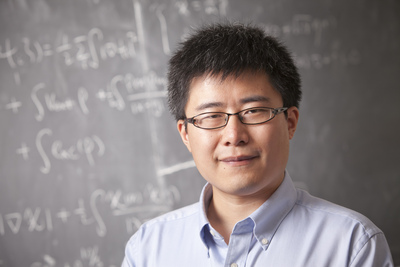
Jianfeng Lu is a Professor of Mathematics, Physics, and Chemistry at Duke University. Before joining Duke University, he obtained his PhD in Applied Mathematics from Princeton University in 2009 and was a Courant Instructor at New York University from 2009 to 2012. He works on mathematical analysis and algorithm development for problems and challenges arising from computational physics, theoretical chemistry, materials science, high-dimensional PDEs, and machine learning. His work has been recognized by a Sloan Fellowship, a NSF Career Award, and the 2017 IMA Prize in Mathematics and its Applications.
Research Areas: Geometric Structures, Low Dimensional Topology, Hyperbolic Geometry.
EDI Statement
Diversity and inclusion promote excellence. No one should be left behind and equal opportunity is the key for success for the mathematics community and society at large.
Sara Maloni (University of Virginia)
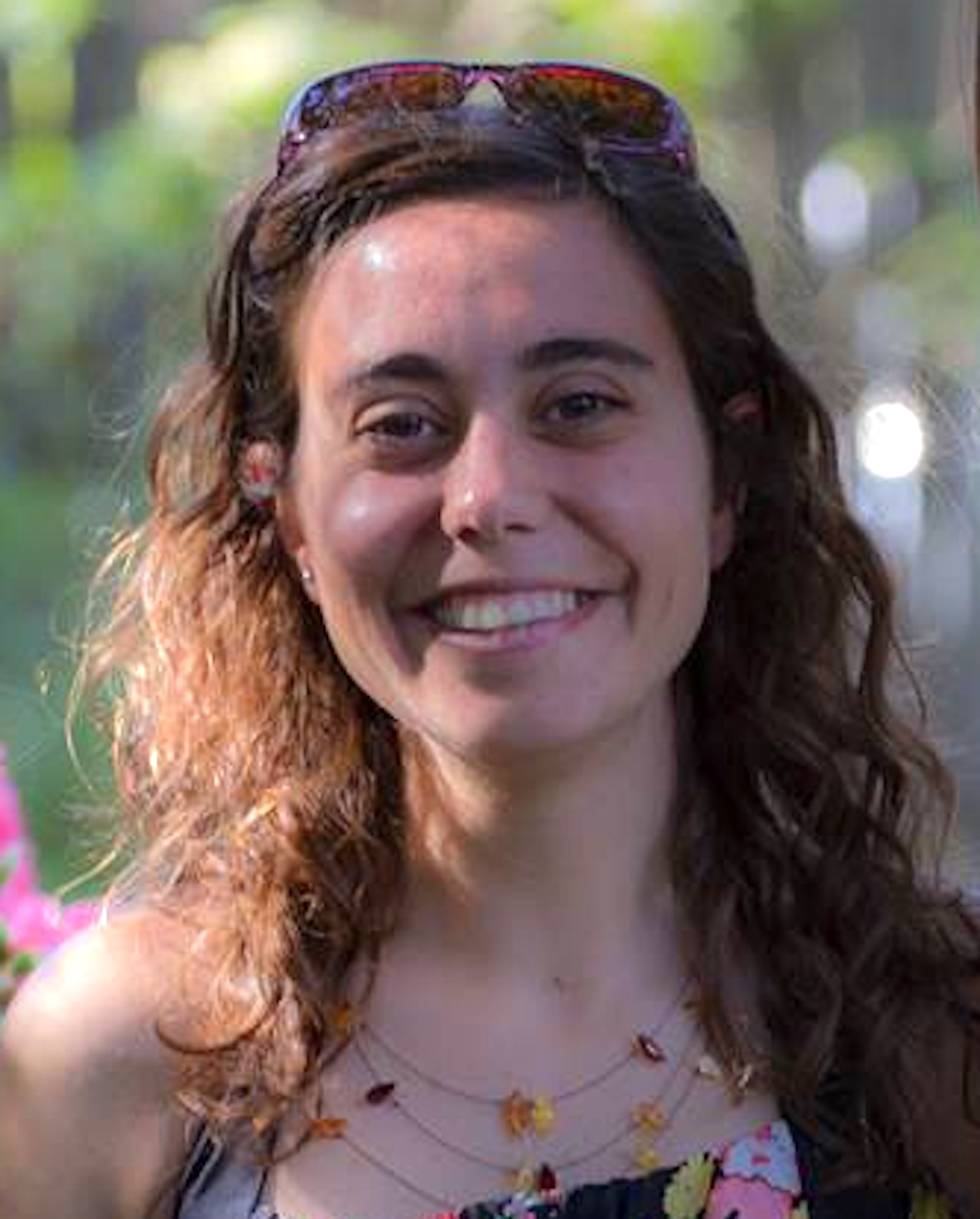
Sara Maloni (she/her/hers) is an assistant professor of mathematics at University of Virginia (UVa), working at the intersection of geometry and low-dimensional topology. More precisely, she studies deformation spaces of geometric structures on low-dimensional manifolds through their geometric, topological and dynamical properties. She grew up in Genova (Italy), but she received her Ph.D. from the University of Warwick (2013). Before moving to Virginia, she was a Tamarkin Assistant Professor at Brown University and a postdoctoral fellow at the University of Paris-Sud 11 and at the University of Toulouse (France). She also spent the Spring semester in 2015 at the Mathematical Sciences Research Institute (MSRI) in Berkeley as a Huneke Endowed Postdoctoral Fellow. Maloni has been awarded an NSF grant and a CAREER award to support her work and has been recognized for excellence in teaching at UVa. She is currently advising one PhD student and mentoring one postdoc.
Maloni has been involved in many programs known to improve the inclusivity and diversity of her department. She started the AWM (Association for Women in Mathematics) Student Chapter at the University of Virginia, and she is currently serving as a faculty advisor for it. She is part of the AWM Student Chapters and the AWM Award Selection Committee. She founded the Directed Reading Program (DRP) at UVa, hoping that it will help to build a more diverse and inclusive undergraduate community. Maloni is a member of the Doctoral Faculty Council (DFC) at the Math Alliance, and has been a mentor for AWM, Math Alliance and UVa for many years. She organized the WINSRS (Women's Intellectual Network Research Symposium) for connecting women working in the mid-Atlantic area and having similar research interests. She also invited Prof. Abby Stewart to give a Diversity Lecture about how to improve the environment of the departments, and she hopes this will become a recurrent event at UVa.
Research Areas: Geometric Structures, Low Dimensional Topology, Hyperbolic Geometry.
EDI Statement
I believe that diversity increases productivity and creativity and creates a better work environment for everyone. I think changes are often very slow, but it is important not to give up. I think too often underrepresented minorities feel they do not belong because they do not see anyone else with who they can identify with, and it is our responsibility to change that. I think everybody needs to be active and vigilant for opportunities to improve the inclusivity of our community.
Karen Meagher (University of Regina)
Marni Mishna (Simon Fraser University)
Saman Muthukumarana (University of Manitoba)
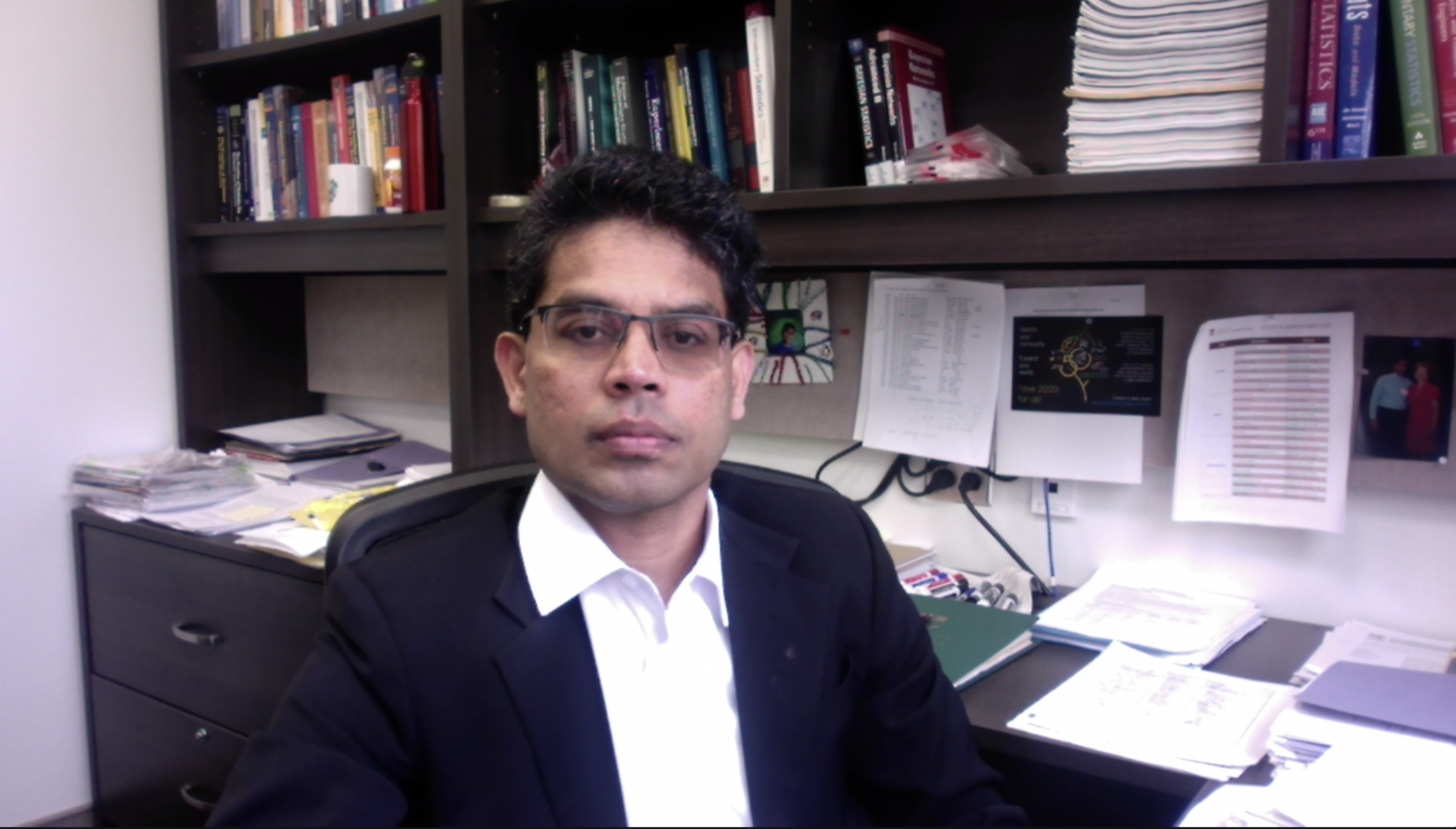
Saman Muthukumarana obtained his B.Sc. honours special degree in Statistics (2002) from the University of Sri Jayewardenepura, Sri Lanka and then M.Sc. in Statistics (2007) and PhD in Statistics (2010) from Simon Fraser University. He joined the Department of Statistics at the University of Manitoba as an Assistant Professor in July 2010 where he was promoted to Associate Professor (with tenure) in 2016 and then to full Professor in 2022. He is the founding Director of Data Science Nexus at the University of Manitoba and he was appointed as the Head of the Department of Statistics at the University of Manitoba starting from July 2023.
His research interests lie broadly in Bayesian methods and computation for complex models which integrate both theoretical and computational aspects. Along with this main theme, he has developed methods to facilitate modelling and inference on non-standard complex data which lead to innovative analyses of data arising from environment and ecology, fisheries, fresh and marine water animal movements, health, infectious diseases, assessing noninferiority in drug developments, user behaviour, social networks and sports.
EDI Statement
We are moving towards a data rich digital world and open AI continues to evolve and integrate into our daily lives. The STEM fields have a bigger role to embrace this new era and I strongly believe that creating equal opportunities for everyone and removing systematic barriers, which prevent accessing the opportunities are crucial for fostering novel collaborations within and between STEM fields in this new era. It’s time to act on EDI principles to actively address inequalities and actively seek the value in diversity.
Anotida Madzvamuse (University of British Columbia)
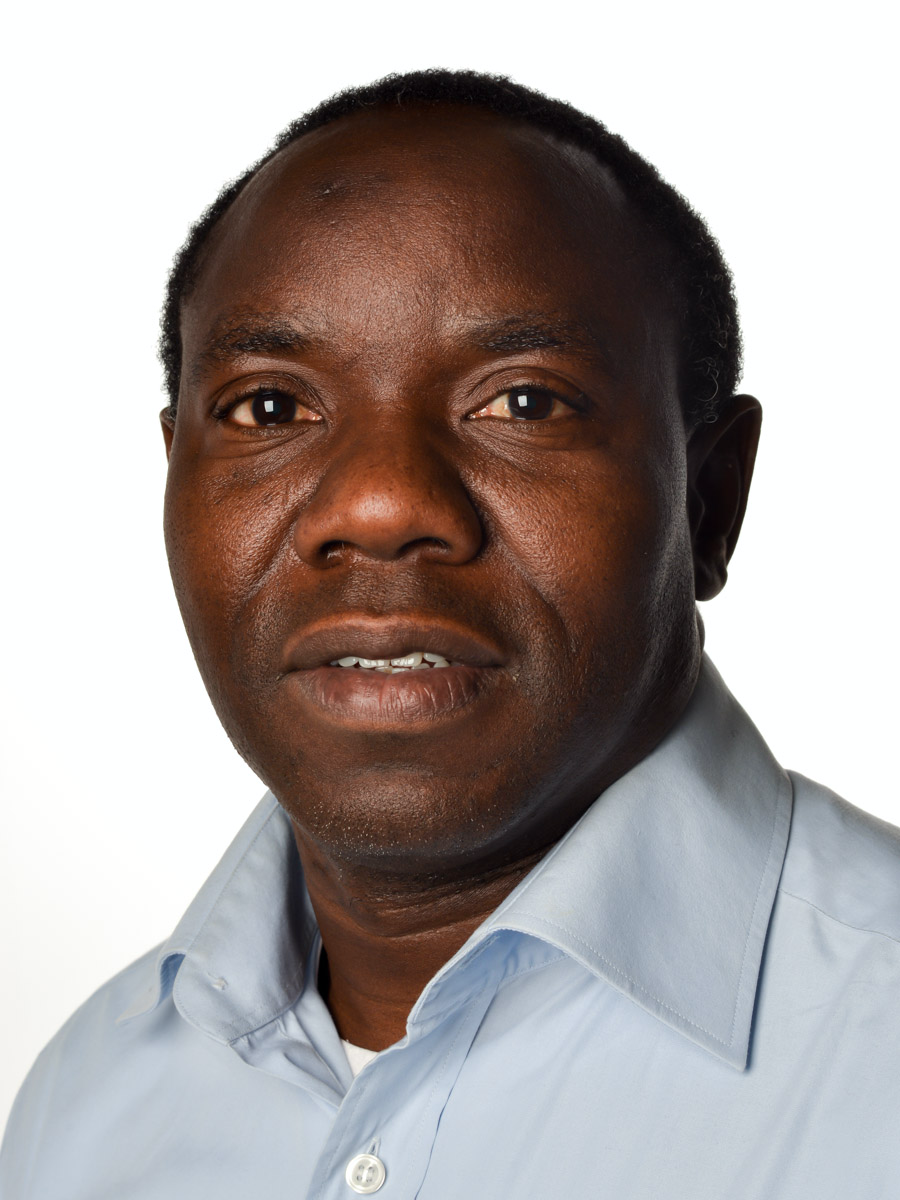
Anotida Madzvamuse holds a Canada Research Chair (Tier 1) in Theoretical and Computational Biology at The University of British Columbia and is a full Professor in the Mathematics Department within the Faculty of Science since October 2022. Before, that he was Full Professor of Mathematical and Computational Biology in the Department of Mathematics at the University of Sussex, where he has been a faculty member since August 2006. He is a DPhil holder in Mathematics awarded by the University of Oxford in 2000. He is a former receipt of the Royal Society Research Merit Award (2016-2021), and was awarded the Theodor von Kaman Fellowship (2016) by RWTH University of Aachen in Germany. Madzvamuse has supervised and mentored more than 25 early career fellows (PhDs and PDRAs) as well as mentoring young early faculty members in the UK, mainland Europe, Africa, South America, North America and Asia. He is an advocate and ambassador for Mathematical Sciences in general and Mathematical and Computational Biology in particular. He was the Principal Organiser of the 6-months research programme at the Isaac Newton Institute for Mathematical Sciences (Cambridge, UK) in 2015 on Coupling Geometric PDEs with Physics for Cell Morphology, Motility and Pattern Formation. He continues to work closely with Learned Societies such as the London Mathematical Society (LMS) (on MARM in Africa), the Institute for Mathematics and its Applications and the Royal Society and International Centre for Mathematical Sciences in Edinburgh, Scotland. Currently, he is a Board Member of the BIRS Scientific and Equality, Diversity and Inclusion Advisory Boards, the INI Gateway Scientific Advisory Panel and the LMS Committee for Women and Diversity in Mathematics.
Madzvamuse is fully committed to implementing good practice in creating a modern and inclusive research environment. He has supervised, mentored and trained early career fellows from diverse economic and social backgrounds including researchers from underrepresented minority groups, including female early career fellows and junior faculty members.
Sandra Palau (IIMAS - Universidad Nacional Autónoma de México)
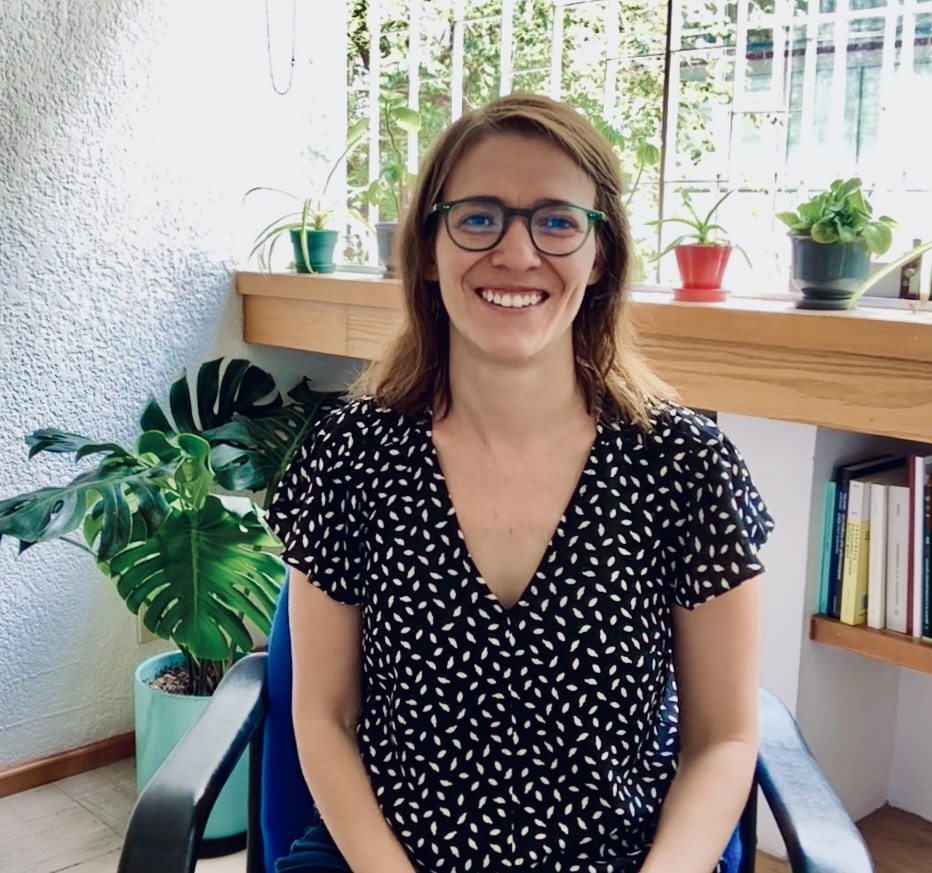
Sandra Palau is an Associated Researcher at the Applied Mathematics and Systems Research Institute at the National Autonomous University of Mexico (IIMAS, UNAM). Her research focuses on the development of Probability and Stochastic processes to address questions in mathematical biology. In 2016, Sandra completed her PhD in Probability and Statistic at CIMAT under the direction of Juan Carlos Pardo and Andreas Kyprianou. She was a Postdoctoral Newton International Fellow at the University of Bath, before joining the department of Probability and Statistics at IIMAS, UNAM, in 2019.
Research Areas: Probability, Stochastic process, Branching processes and population genetics.
Ajay Ramadoss (Indiana University)
Ludovic Rifford (Université Côte d’Azur)
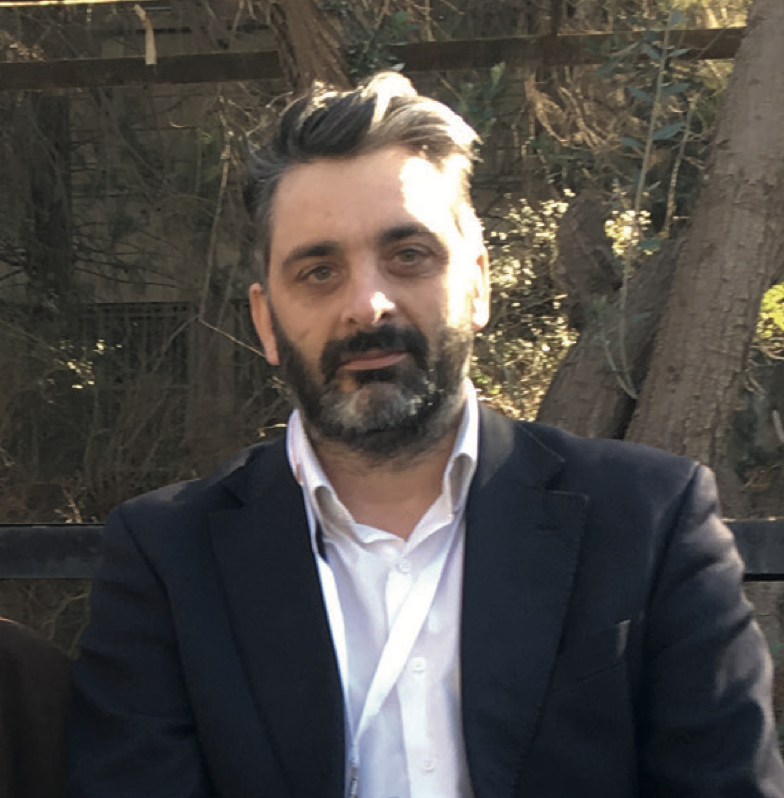
Ludovic Rifford is a Professor of Mathematics at Université Côte d’Azur, France. His research interests include geometric control theory, sub-Riemannian geometry, Hamiltonian dynamics, and optimal transport. He received his Ph.D. from Université Lyon 1, France, under the supervision of Francis Clarke. In 2000, he was a postdoctoral fellow in Padua, Italy, before holding Maître de conférences positions in Lyon and Orsay. He joined the University of Nice as a professor in 2006. Ludovic Rifford is actively engaged in international cooperation. He served as Executive Director of CIMPA from 2016 to 2020 and is currently the Secretary for Policy of the Commission for Developing Countries of the International Mathematical Union. Additionally, since January 2024, he has held a CNRS-AIMS Chair in Senegal.
Talia Ringer (UIUC)

Talia Ringer is an Assistant Professor at the University of Illinois Urbana-Champaign. Their main interest is in making program verification using interactive theorem provers more accessible through better proof engineering tools and practices, especially when it comes to maintaining proofs as programs change over time. Their vision is a future of verification that is accessible to all programmers, not just to experts. They got their Ph.D. from University of Washington in June 2021. Prior to graduate school, they earned their bachelor’s in mathematics and computer science from University of Maryland, then worked at Amazon as a software engineer for three years. They are the founder and previous chair of the SIGPLAN-M international long-term mentoring program, the founder and president of the Computing Connections Fellowship, and a contributor to the Coq interactive theorem prover. They helped organize the National Academies workshop on AI to Assist Mathematical Reasoning. They also organize online communities for neurodivergent researchers in computer science. They were awarded the ACM SIGPLAN Distinguished Service Award in 2023.
EDI Statement
My commitment to diversity is about giving researchers of all backgrounds the tools necessary to succeed, especially when systemic barriers deprive researchers of those tools. My approach is to analyze the systems or lack thereof that deprive researchers of those tools, and use that information to improve existing systems or build new systems. I leverage my experiences as a queer neurodivergent person when they are relevant; I uplift and empower others when they are not. Concretely, I have focused most on: (1) creating better mentorship systems to make the implicit "hidden curriculum" explicitly available to everyone, and (2) creating systems to help researchers in unsafe research environments get to better environments and safely speak up. I believe that safety is the very foundation of a sound research community, and that it should be every researcher's top priority to ensure that all researchers---especially those from marginalized groups---have that foundation.
Alberto Saldaña (IM - Universidad Nacional Autónoma de México)
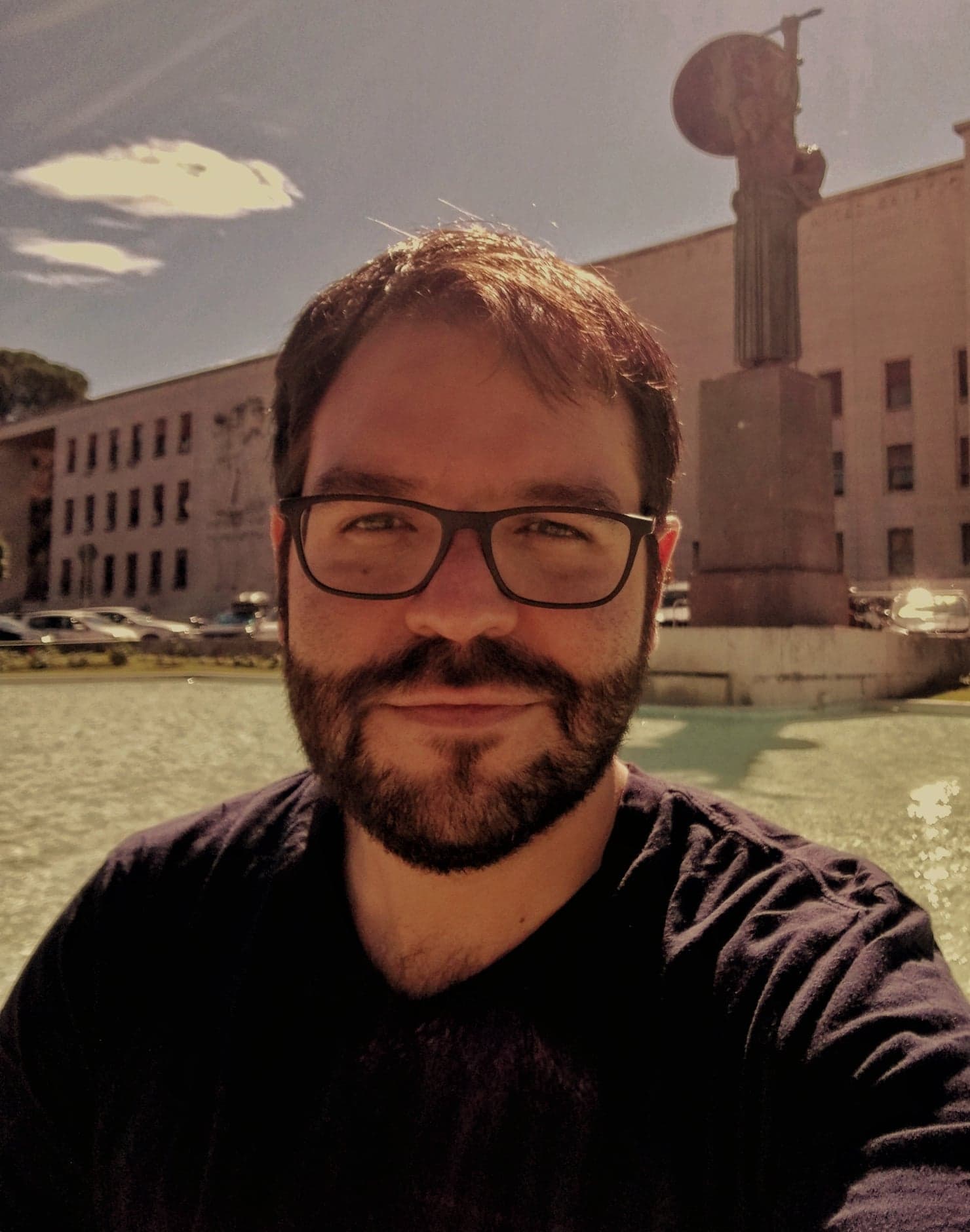
Alberto Saldaña is a Mexican mathematician who works at the Institute of Mathematics of the National Autonomous University of Mexico (UNAM). His research is mainly focused on the analysis of partial differential equations, conducting a rigorous study of these mathematical objects (often motivated by models coming from physics, biology, chemistry, astrophysics, etc), by characterizing the existence of solutions and their qualitative properties through the use of a wide range of techniques that lie at the intersection of different areas of mathematics such as topology, functional analysis, probability, potential theory, scientific computing, calculus of variations, dynamical systems, and differential geometry.
Alberto received his Ph.D. in mathematics from the University of Frankfurt, Germany in 2014. Afterwards, he was a postdoctoral researcher at the Free University of Brussels (Belgium), at the Instituto Superior Técnico de Lisboa (Portugal), and at the Karlsruhe Institute of Technology with a grant from the Alexander von Humboldt Foundation (Germany). He has been a researcher at UNAM since 2019.
Research Areas: Analysis of partial differential equations. In particular, Non-local operators such as the fractional Laplacian, Non-linear elliptic equations, Variational methods, Scientific computing.
EDI Statement
Diversity in science goes hand in hand with excellence. The multiple perspectives that come from different backgrounds and experiences will often lead to more creative and effective problem solving strategies. To build an inclusive culture in STEM, we need to foster visibility and an environment where everyone feels valued and respected, regardless of their gender, ethnicity, sexual orientation, age, or background. Every time we make an important choice, we have to ask: How can I promote multiple perspectives?
Song Sun (UC Berkeley, IASM)
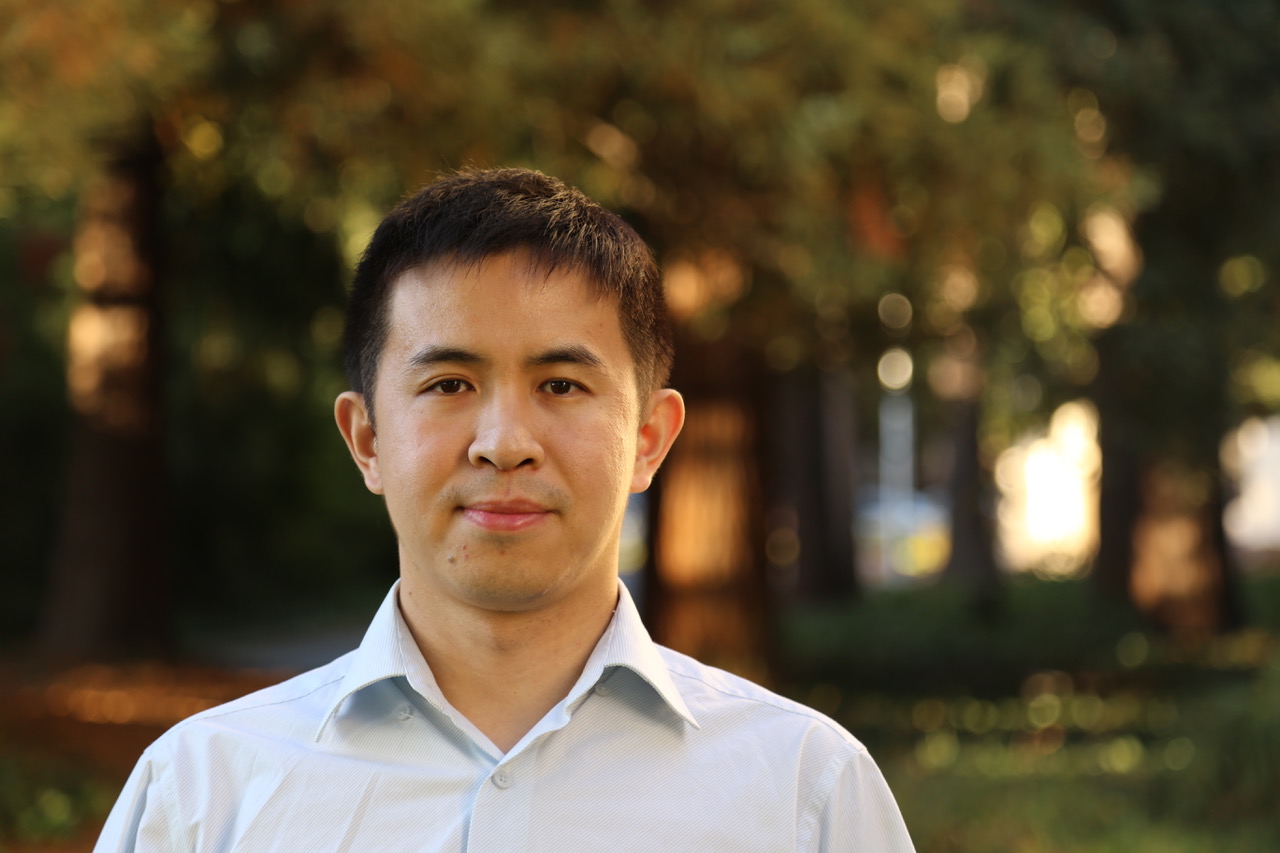
Song Sun is currently a Professor at the Institute for Advanced Study in Mathematics, Zhejiang University and at the University of California, Berkeley. He received a BS from the University of Science and Technology of China in 2006, and a PhD from University of Wisconsin-Madison in 2010, under the supervision of Xiuxiong Chen. He held a postdoctoral position at Imperial College London and served as a faculty at Stony Brook University until 2018. Sun received the Alfred P. Sloan Research Fellowship in 2014, the Oswald Veblen Prize in geometry in 2019 (jointly with Xiuxiong Chen and Simon Donaldson) and the New Horizons in Mathematics Prize in 2021. He delivered an invited address at the International Congress of Mathematicians in Rio de Janeiro (2018).
Research Areas: Differential Geometry, Complex Geometry, Geometric Analysis
Aaron Tikuisis (University of Ottawa)
Aissa Wade (Penn State University)
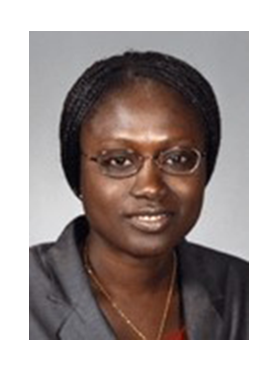
Aissa Wade is a Professor at Penn State University. She completed her Ph.D. in 1996 at the University of Montpellier 2, where she held a temporary position as lecturer and researcher assistant (1997-1999) before moving to the Abdus Salam ICTP in Trieste, Italy as a postdoc fellow.
She has held visiting positions at UNC-Chapel Hill, Toulouse, Geneva, and the University Cheikh Anta Diop of Dakar in Senegal. From 2016 to 2018, she was the head of the African Institute of Mathematical Sciences (AIMS) in Senegal. She was elected a fellow of the African Academy of Sciences in 2017.
Research Areas: Differential Geometry, Mathematical Physics






